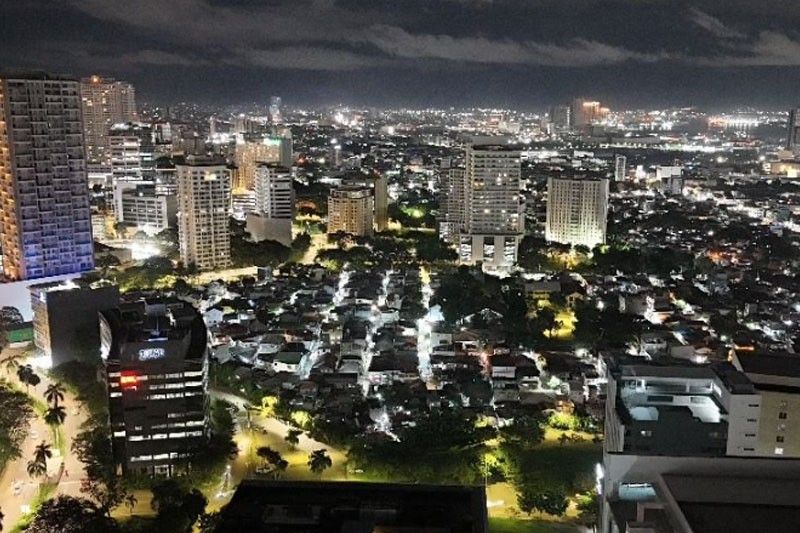2025 for cebu: ‘A year to thrive’

CEBU, Philippines — Economic experts from the ASEAN+3 Macroeconomic Research Office (AMRO) see a brighter economic outlook for the Philippines in 2025 with gross domestic product (GDP) growth forecasted to hit at 6.3 percent from 5.8 percent in 2024.
Strong domestic and external demands are seen as driving force in the expected increase in GDP. Inflation is also projected to decline to 3.2 percent providing businesses with a stable operating environment.
AMRO highlighted the need for strategic fiscal adjustments, long-term infrastructure investments to enhance productivity, and strengthened financial stability measures to mitigate risks in household and property sectors.
Cebu Island, comprising of Cebu Province and the highly urbanized cities of Cebu, Mandaue and Lapu-Lapu, is also projected to replicate its economic performance in the last two years having achieved a P1.01 trillion GDP in 2023.
Data from the Philippine Statistics Authority (PSA) show that Lapu-Lapu City registered the fastest growth at 9.4 percent, followed by Cebu City at 8.3 percent, and Mandaue City at 7.6 percent. All three cities outpaced the regional growth rate of 7.3 percent.
With interest rates expected to ease and inflation remaining at a manageable level, Cebu businesses are urged to innovate and lead. By focusing on education, digital transformation, and sustainability, local business leaders believe that Cebu can redefine its economic landscape and solidify its role as a hub of commerce and innovation in the Philippines.
According to the local business leaders, the year 2025 is an opportunity for Cebu to thrive—a year to adapt, innovate, and shape a brighter economic future.
Business leaders see 2025 as a pivotal year marked by optimism and tempered with challenges posed by the upcoming midterm elections and global economic shifts.
Despite challenges, however, business leaders are confident that the momentum generated in 2024 will serve as a foundation for transformative growth as they call on businesses to innovate.
Philippine Chamber of Commerce and Industry (PCCI) area vice president for the Visayas, Melanie Ng, described 2024 as a transformative year where businesses showcased resilience through diversification and digitalization.
“Agility and innovation have become non-negotiable for businesses to thrive,” she noted, highlighting how companies that invested in artificial intelligence (AI) and sustainability gained a competitive edge.
Skills, sustainability, and digitalization
The Cebu business community projects that 2025 will be shaped by the following trends:
•Skill Development: Communication, AI literacy, and strategic planning remain critical.
•Sustainability Focus: Companies aligning with global sustainability goals are expected to excel.
•Digital Transformation: AI and automation will redefine industries, presenting both challenges and opportunities for workforce upskilling.
Mark Ynoc, president of the Mandaue Chamber of Commerce and Industry (MCCI), emphasized the importance of aligning education with industry needs.
Cebu’s business leaders also urged the government and policymakers to prioritize development in the following key areas:
•Transportation and Logistics: Enhanced port and transport connectivity.
•Power Costs: Addressing high energy expenses to reduce operational costs.
•Ease of Doing Business: Streamlining processes to attract foreign direct investments (FDIs).
The return of major events, including the upcoming opening of SMX Cebu and the convention center at Mactan Newtown, is also expected to bolster Cebu's trade and tourism profile.
Tourism and real estate will remain Cebu's main economic drivers in 2025. Ynoc noted that these industries are forecasted to sustain growth, supported by increased direct flights, renewable energy-powered developments, and a stable power supply to ensure uninterrupted business operations.
Election-Year Dynamics
While election years typically induce a "wait-and-see" sentiment, Cebu’s business leaders remain optimistic. The election season and the potential transition of political leaders—particularly in the local scene—are not expected to disrupt the generally promising outlook for 2025.
Jay Yuvallos, president of the Cebu Chamber of Commerce and Industry (CCCI), views 2025 as a transformative year, underscoring the need for collaboration and innovation through programs like "Invest Cebu and "Prosper in Paradise,” branding campaign.
Economic Drivers And Challenges
Steven Yu, MCCI past president, outlined key growth drivers for 2025, including consumption and retail, boosted by Sinulog festivities in January and election-related spending.
The Business Process Outsourcing (BPO) sector will remain one of Cebu’s economic pillars, with expansions and remote operations providing employment opportunities across the province.
Additionally, robust countryside development is decongesting urban centers and unlocking rural tourism potential, laying the foundation for widespread economic growth.
Among the challenges, however, will be addressing the skills gap created by AI and automation and mitigating the impact of climate change. Yu stressed the importance of serious preparation to tackle climate change-driven calamities.
Infrastructure modernization, particularly in power and water self-sufficiency, should be a top priority for Cebu’s political leaders. Without this focus, Yu believes that Cebu risks losing investment opportunities to more competitive destinations locally and internationally. — (FREEMAN)
- Latest





















